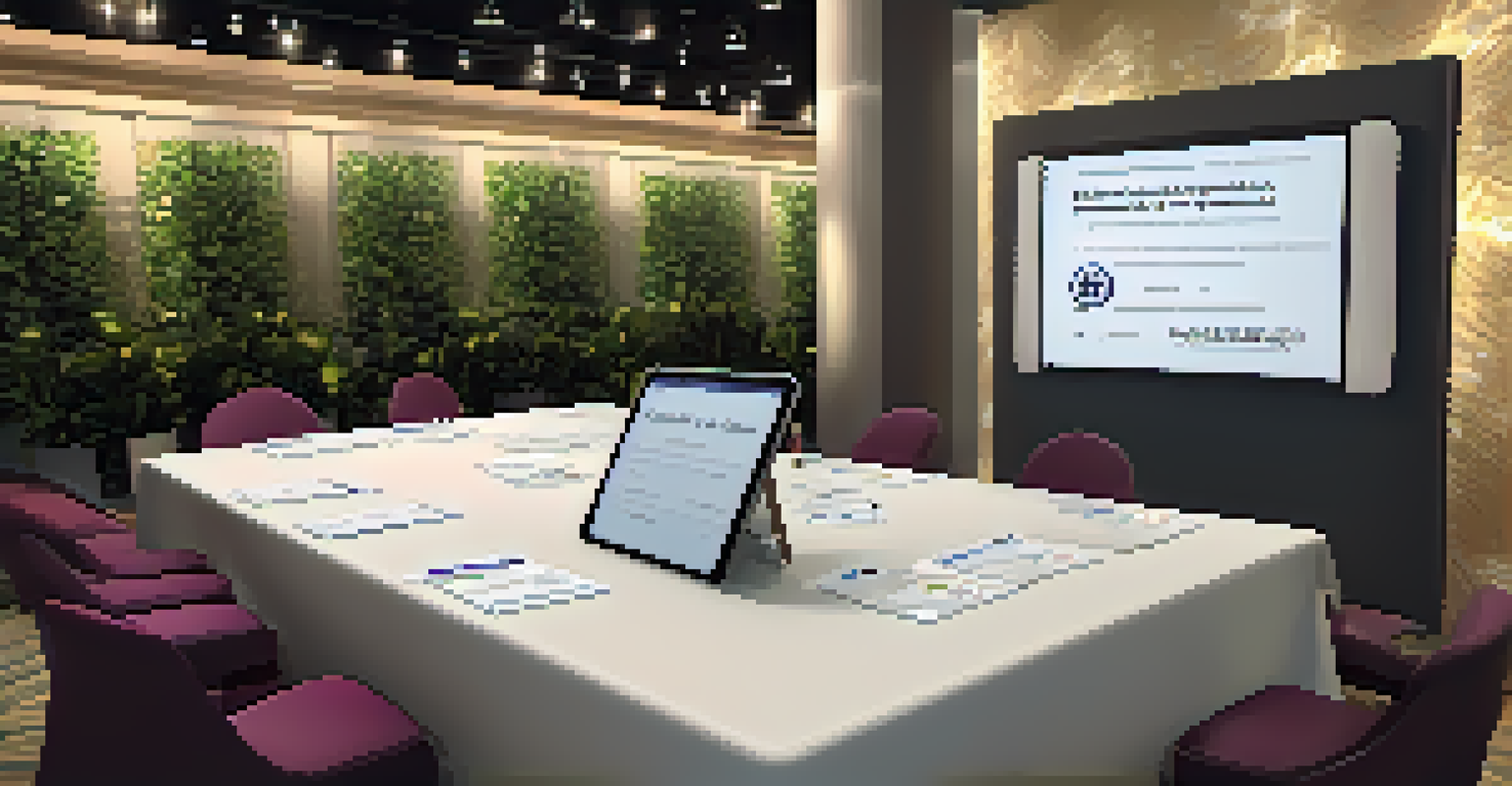Collecting Feedback: Importance During Open House Events

Understanding the Importance of Feedback
Feedback is like a compass guiding your open house events in the right direction. It helps you understand what attendees liked and what could be improved. By collecting feedback, you can tailor future events to better meet the needs and expectations of your audience.
Feedback is the breakfast of champions.
Imagine hosting an event where guests leave satisfied, feeling heard and valued. That’s the power of feedback. It creates a two-way communication channel, allowing you to not only showcase your offerings but also learn directly from your audience’s experiences.
Ultimately, feedback transforms your event from a one-time occurrence into a continuous learning opportunity. This can lead to higher satisfaction rates and increased attendance at future events, creating a community around your brand.
Setting Up Feedback Mechanisms
To effectively gather feedback, you need to set up the right mechanisms. This could include simple methods like comment cards or more interactive options like digital surveys. Consider placing QR codes around your venue that link to a quick feedback form, making it easy for attendees to share their thoughts.

The key is to make it accessible and engaging. If guests feel that providing feedback is a hassle, they might skip it altogether. Ensure that your methods are straightforward and encourage honest responses, creating a comfortable environment for sharing opinions.
The Power of Feedback
Feedback transforms events into opportunities for continuous improvement by allowing organizers to understand attendee experiences.
Engaging attendees during the event can also yield richer insights. Try hosting a brief feedback session or using live polls to capture their thoughts in real-time. This can spark conversations and help you gather a variety of perspectives.
Timing: When to Collect Feedback
Timing plays a crucial role in the effectiveness of feedback collection. Ideally, you want to gather feedback while the event is still fresh in attendees' minds. This could be immediately after the event or within a few days when their experiences are still vivid.
What is the shortest word in the English language that contains the letters: abcdef? Answer: Feedback. That’s the breakfast of champions. The only thing that’s better than feedback is appreciation.
Consider sending a follow-up email thanking attendees for coming and including a feedback survey. This not only shows you value their input but also provides a chance for them to reflect on their experience. Quick responses are often more detailed and insightful.
However, don’t rush the feedback process. Allow attendees some time to think about their experience before asking for their thoughts. This balance helps ensure that the feedback you receive is thoughtful and constructive.
Incorporating Feedback into Future Events
Receiving feedback is just the first part; the real magic happens when you incorporate it into future events. Analyzing the collected data helps identify patterns and areas for improvement. This means that the next open house can be even better than the last.
For example, if attendees consistently mention a lack of seating, it’s time to rethink your layout. Adjusting based on feedback not only enhances the experience but also demonstrates to your audience that you value their opinions.
Effective Feedback Collection
Setting up accessible and engaging feedback mechanisms ensures attendees feel comfortable sharing their thoughts.
By showcasing changes made from past feedback, you also build credibility and trust with your audience. They’ll appreciate knowing that their voices are heard and considered, which can lead to increased loyalty and participation in future events.
Engaging Attendees in the Feedback Process
Engagement is key when collecting feedback. Instead of simply asking for opinions, involve attendees in the process and make it a part of the event experience. This could be through interactive sessions where they can discuss their thoughts openly.
Consider gamifying the feedback process—offering small incentives for completing surveys or participating in discussions can significantly boost response rates. People love to feel appreciated, and this approach not only gathers information but also enhances their overall experience.
Remember, the more involved your attendees feel, the more likely they are to provide meaningful feedback. It’s all about creating a sense of community where everyone’s voice matters.
Analyzing Feedback Effectively
Once you’ve collected feedback, the next step is to analyze it effectively. Look for trends and recurring themes that can help you pinpoint successes and areas needing improvement. This analysis is crucial for making informed decisions for future events.
Consider using tools that can help streamline the process—spreadsheets, feedback management software, or even simple graphs can illustrate key points. Visualizing data can make it easier to identify patterns and understand what attendees are saying.
Building a Feedback Culture
Fostering a culture of ongoing feedback creates a loyal community that enhances both events and attendee relationships.
Don’t forget to share your findings with your team. A collective understanding of attendee feedback can lead to more cohesive planning and brainstorming for future events, ensuring everyone is on the same page.
Building a Feedback Culture
Creating a culture of feedback goes beyond a single event; it’s about fostering ongoing communication with your audience. Encourage attendees to share their thoughts not just during open houses, but throughout the year. This can help you stay connected and informed about their preferences.
Utilize social media platforms to invite feedback, share updates, and keep the conversation going. By making feedback a regular part of your engagement strategy, you’ll cultivate a loyal community that feels invested in your brand.

Ultimately, building a feedback culture can lead to continuous improvement and innovation. It’s a win-win situation where both you and your audience can grow together, enhancing not only your events but also your relationship with your attendees.